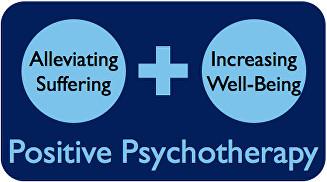
Counselling Psychotherapy Services
In-house psychotherapy and counselling
At Regent Street Clinic™ we understand how difficult it is to know where to turn when things get too much at various points in life.
We know how difficult it can be to take the first step in acknowledging that you need professional help.
Our in-house counsellors are here to help and provide support and practical guidance in getting things back on track when there has been an emotional ‘wobble’.
Our therapists offer a totally confidential one-on-one service aimed at overcoming emotional difficulties and moving forward in life in a positive and structured manner.

Cognitive and Behavioural Psychotherapy (CBT) has been shown to help in:
- Anxiety disorders
- Depression
- Obsessive Compulsive Disorders (OCD)
- Bereavement
- ‘Stress’ – including ‘work-related sress’
- Borderline Personality Disorder
- Post-traumatic stress disorder (PTSD)
- Eating Disorders – anorexia nervosa and bulimia
- Substance Misuse
- Attention Deficit Hyperactivity Disorder (ADHD)
- Bipolar Illness
- Alcohol
- Marital problems
- Low self esteem
- Behavioural problems
- Phobias

There are many different types of psychotherapy
The type used will depend on your personal needs and which method your psychotherapist thinks will be most helpful for resolving your issues.
At Regent Street Clinic™ we believe that the most effective therapy is based around a brief, focused, a directive model which is most likely to lead to clinical improvement. To this end, our Clinical Psychology Consultant will offer a cognitive and behavioural therapy (CBT) approach, a model that has been shown to be most clinically effective for a number of emotional issues that we see at the clinic.
Cognitive and Behavioural Psychotherapy
Behavioural psychotherapy and cognitive therapy are combined in cognitive behavioural therapy (CBT).
Cognitive therapy focuses on ways in which your thoughts and beliefs may be causing emotional problems. Your therapist will discuss these issues with you so that you can try to develop more helpful ways of thinking and are able to overcome the problems.
Behavioural psychotherapy can be used to help you gain a healthy, structured life. It is also often used to overcome a specific fear or phobia by helping you change the way you act. Your therapist may encourage you to gradually face these fears and help you to relax and feel comfortable as you do it.
During CBT sessions you and your therapist agree on tasks for you to do in between those sessions. This will help you deal with problems yourself so that you no longer need therapy.
CBT is usually aimed at a specific problem and the sessions are often brief. The length of the course and the number of sessions needed varies depending on each individual case.
CBT v Counselling
Counselling and psychotherapy are umbrella terms that cover a range of talking therapies.
They are delivered by trained practitioners who work with people over a short or long term to help them bring about effective change or enhance their wellbeing Psychotherapy is a type of therapy used to treat emotional problems and mental health conditions.
It involves talking to a trained therapist, either one-to-one, in a group or with your wife, husband or partner.
It allows you to look deeper into your problems and worries and deal with troublesome habits and a wide range of mental disorders, such as depression and schizophrenia.
Psychotherapy usually involves talking but sometimes other methods may be used – for example, art, music, drama and movement.
Psychotherapy can help you to discuss feelings you have about yourself and other people, particularly family and those close to you. In some cases, couples or families are offered joint therapy sessions together.
A therapist will treat sessions as confidential. This means you can trust them with information that may be personal or embarrassing.
One of the key objectives of psychotherapy is to help you gain a better understanding of the issues that are troubling you.
It can help you work out new ways of approaching situations that you find difficult, as well as suggesting new methods to help you cope.
Developing a trusting relationship with your psychotherapist is very important, and will help you to talk about long-standing problems. However, developing trust can take time. Depending on the disorder and the style of psychotherapy, some treatment courses may need to last for several months or, in some cases, years.
